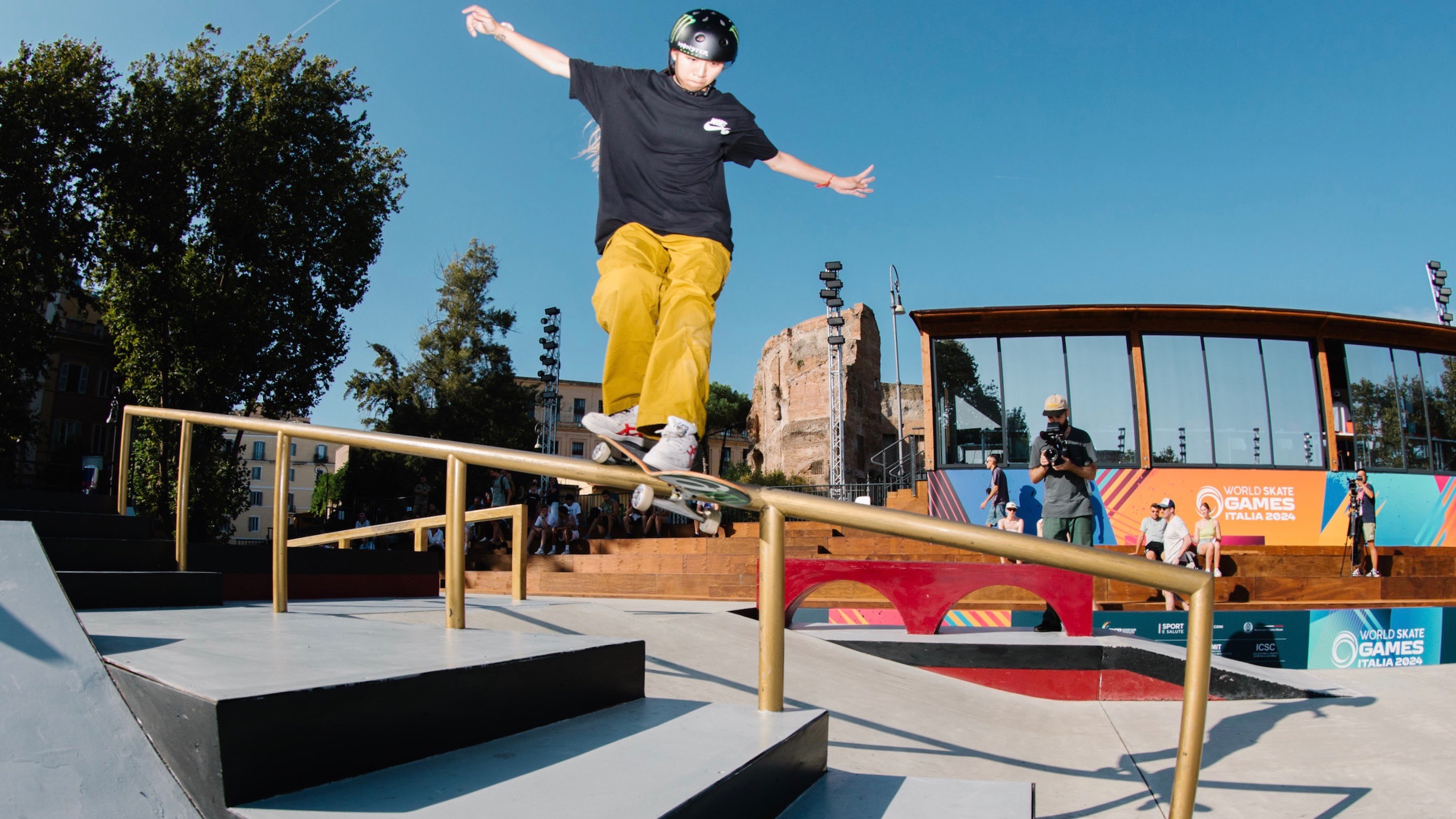Let’s address the elephant in the room by way of a sunny anecdote: during the Paris Olympic Games last year, we set up a sort of informal skate camp in the corner of one of those elongated marquees which are often used for military dining and the like.
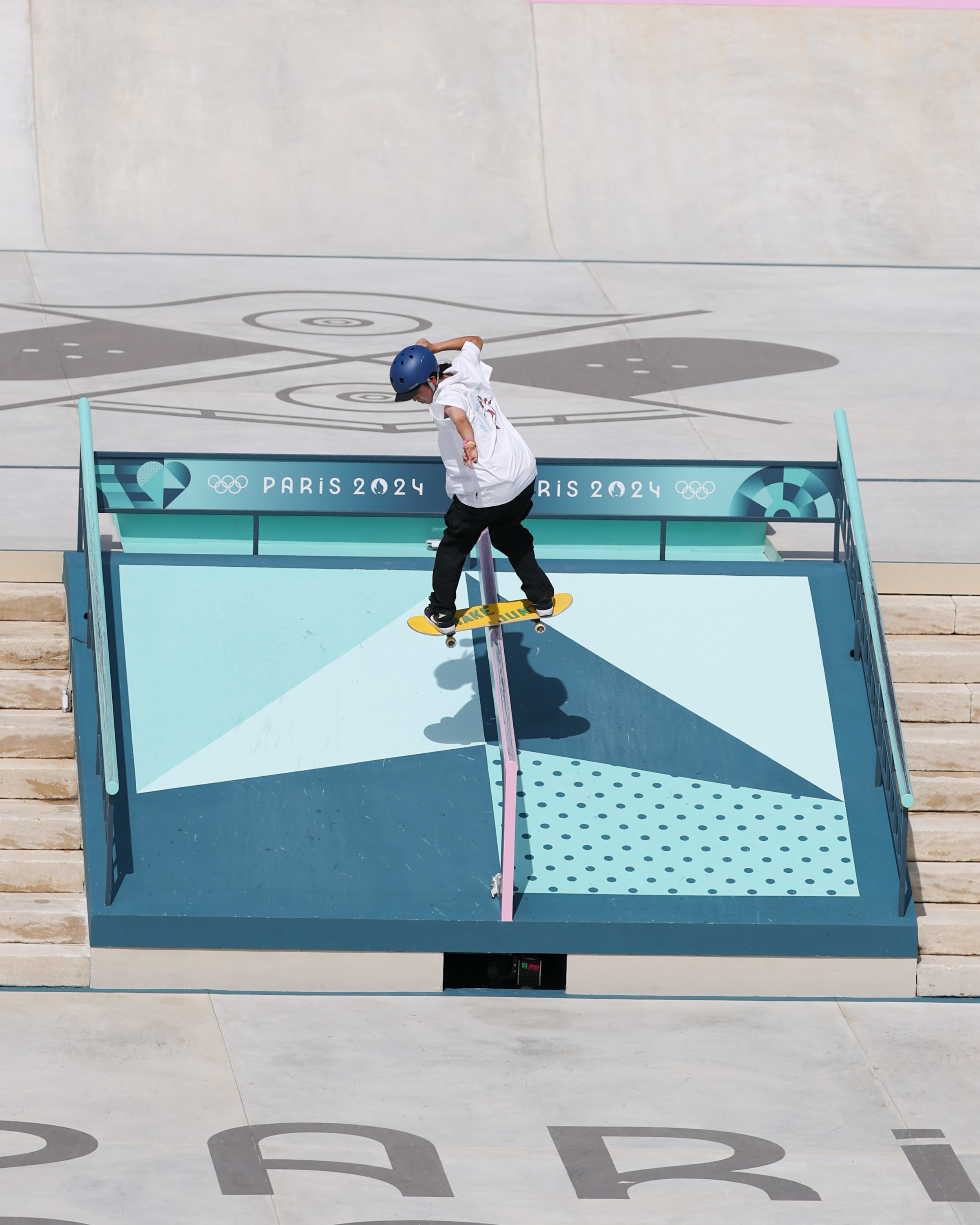
Funa Nakayama. Current WSR Ranking: 4th Ph: Atiba
It was largely empty, reserved for post-Olympic interviews and so on, but the relative solitude in the otherwise pretty On-It atmosphere of those few epic weeks in which skateboarding expressed itself most fully on the outside world, we formed a little nucleus of skateboarding media. Photographers would store their bags; commentators would swing by to gossip and giggle.
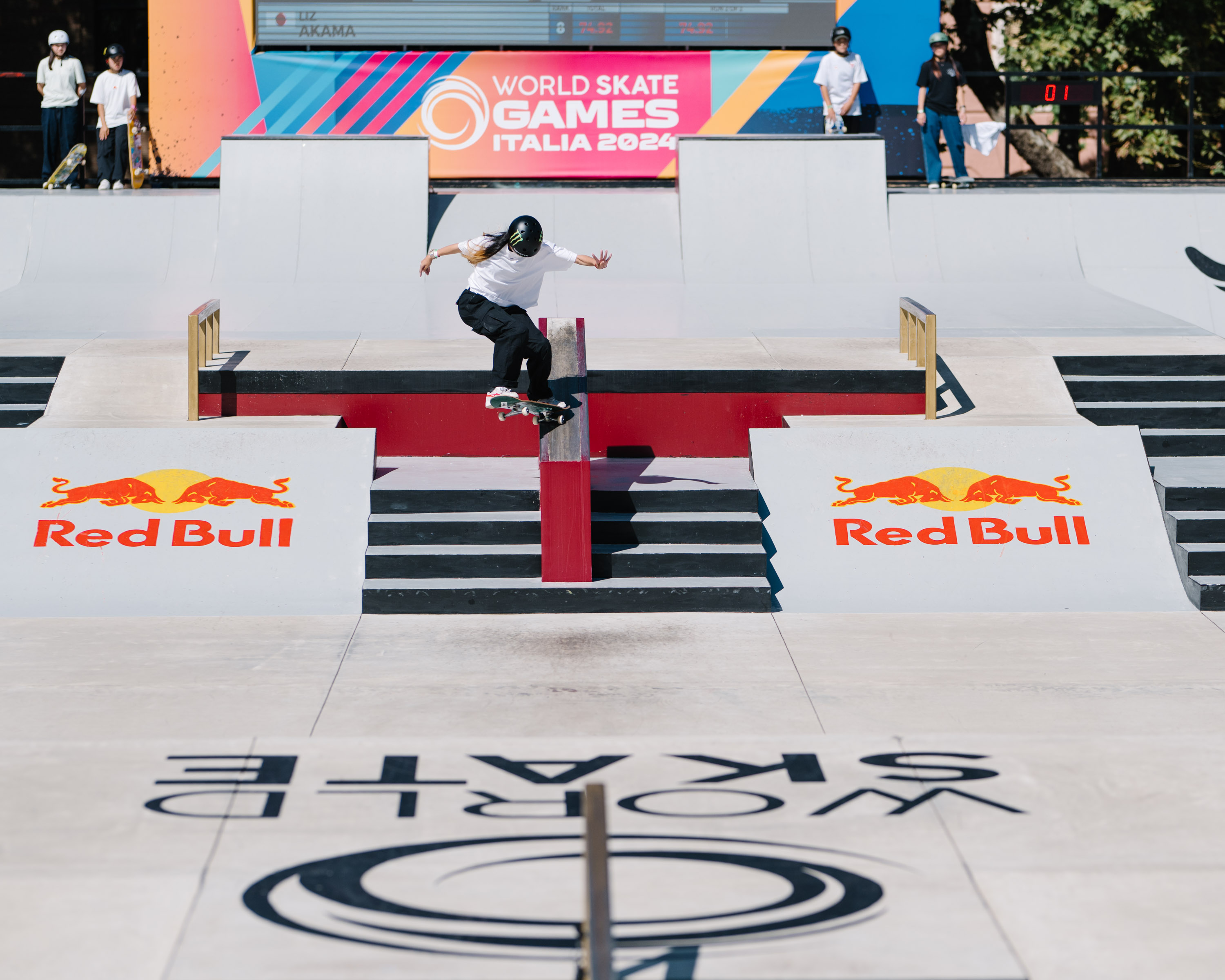
Liz Akama. Current WSR Ranking: 2nd Ph: Haruta
Over the space of those weeks, as skateboarding hoved into the view of the collective Olympic consciousness, proper sports journalists on nearby desks who were tasked with covering multiple medal disciplines would suddenly look at the competitive skateboarding landscape and drift over for a Quick Word.
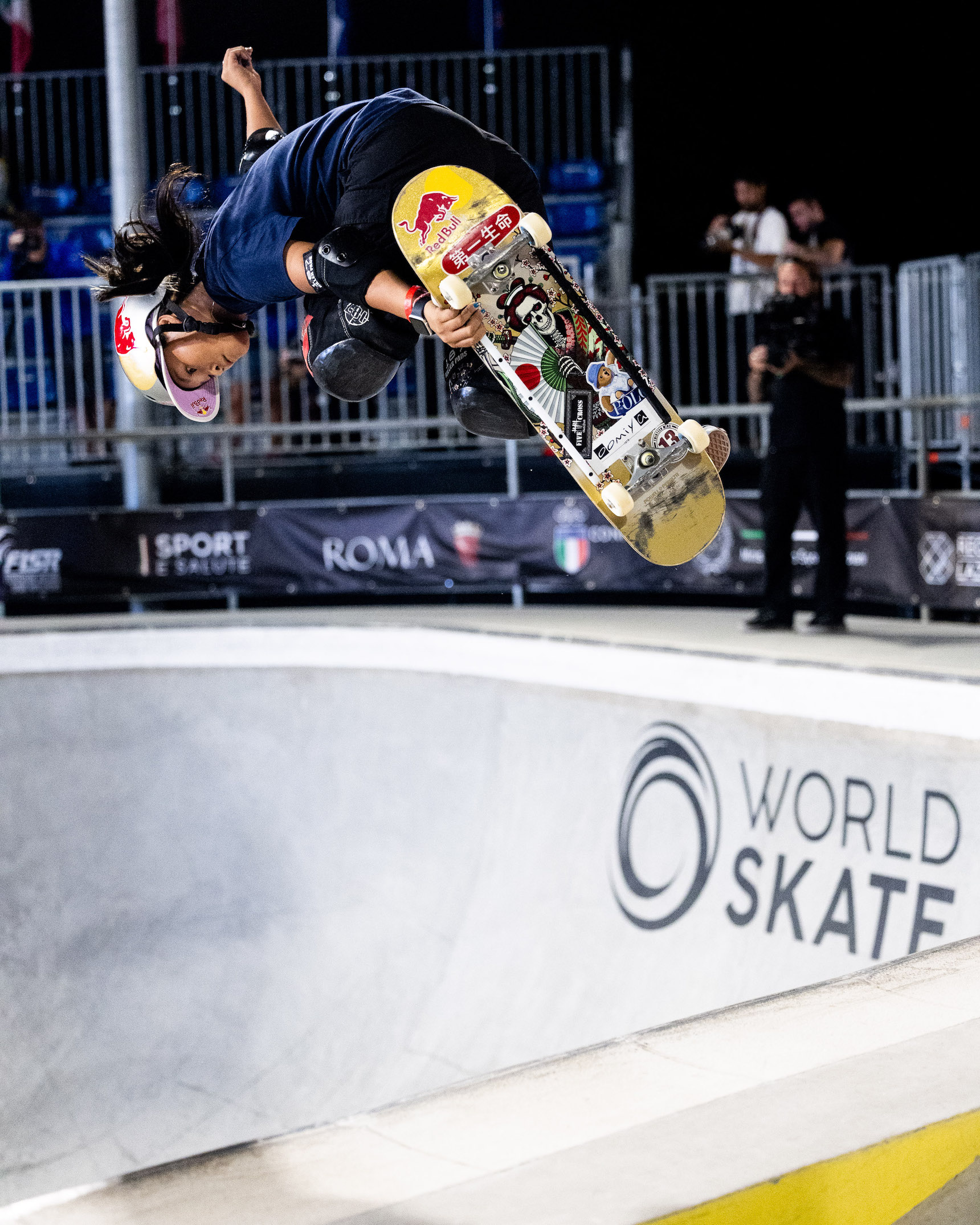
Sakura Yosozumi. Current WSR Ranking: 7th Ph: Kanights
The Quick Word, 100% of the time, was: “How come the Japanese are so good at this?”
So, look: avid readers of these ramblings will already know- as we talked about in regards to the Basque Quandary and Brazilian Mystery beforehand- if it were a 2D thing, then 2D copies would be doing that same thing- but worse- right now.
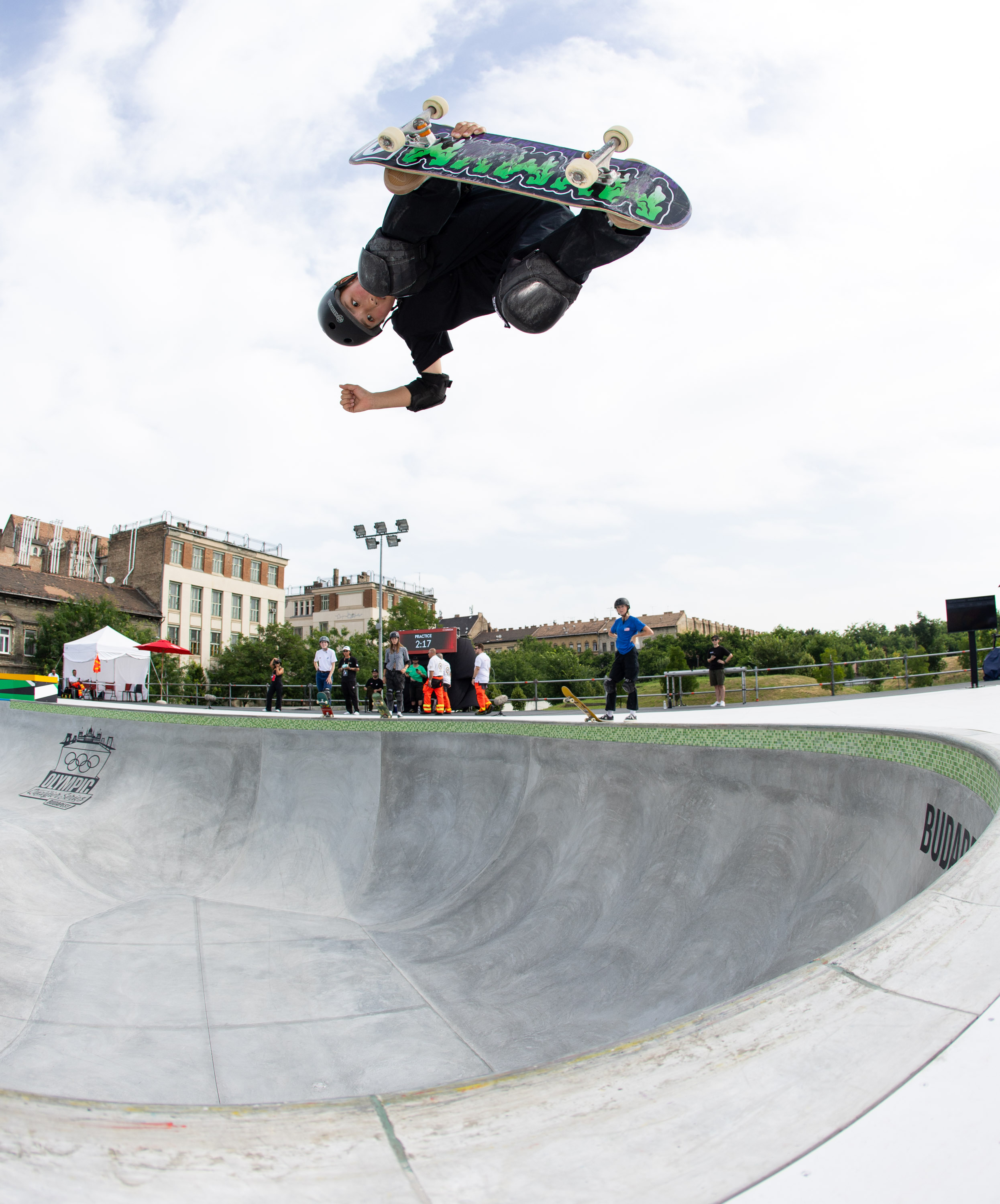
Mei Sugawara. Current WSR Ranking: 8th Ph: Kanights
With that said, there are three (in my entirely subjective- but usually correct- opinion) factors which might go to the heart of that matter: but before we get to all that excitement, there is a big caveat to deliver, and a recognition to be recognised.
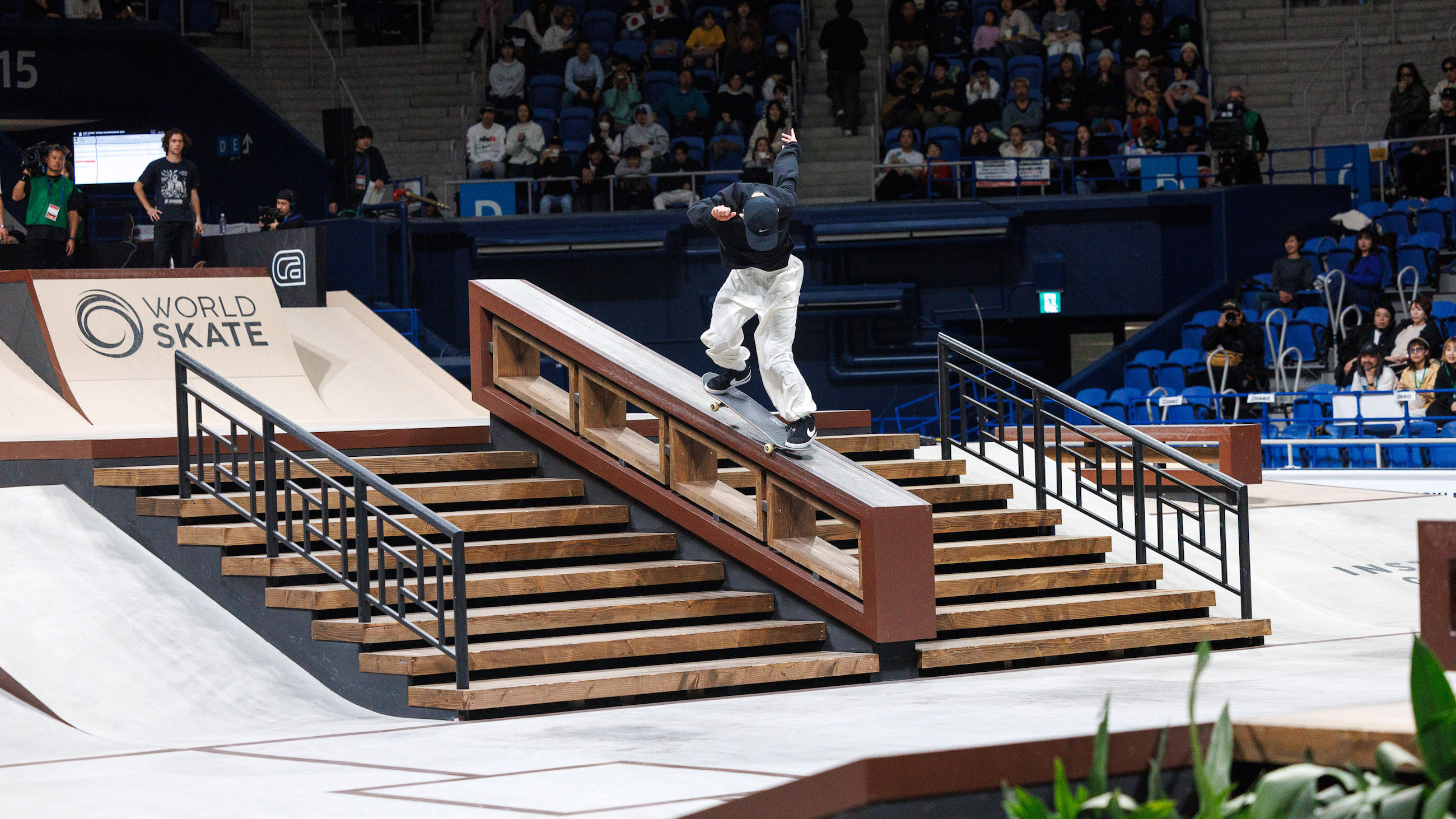
Sora Shirai. Current WSR Ranking: 3rd Ph: Atiba
Let’s start with the recognising: on the World Skateboarding Ranking headed into the LA28 cycle- which will be, in all likelihood, Rather A Big Deal For Skateboarding- the Japanese dominance that all those journalists suddenly spotted currently looks as follows.
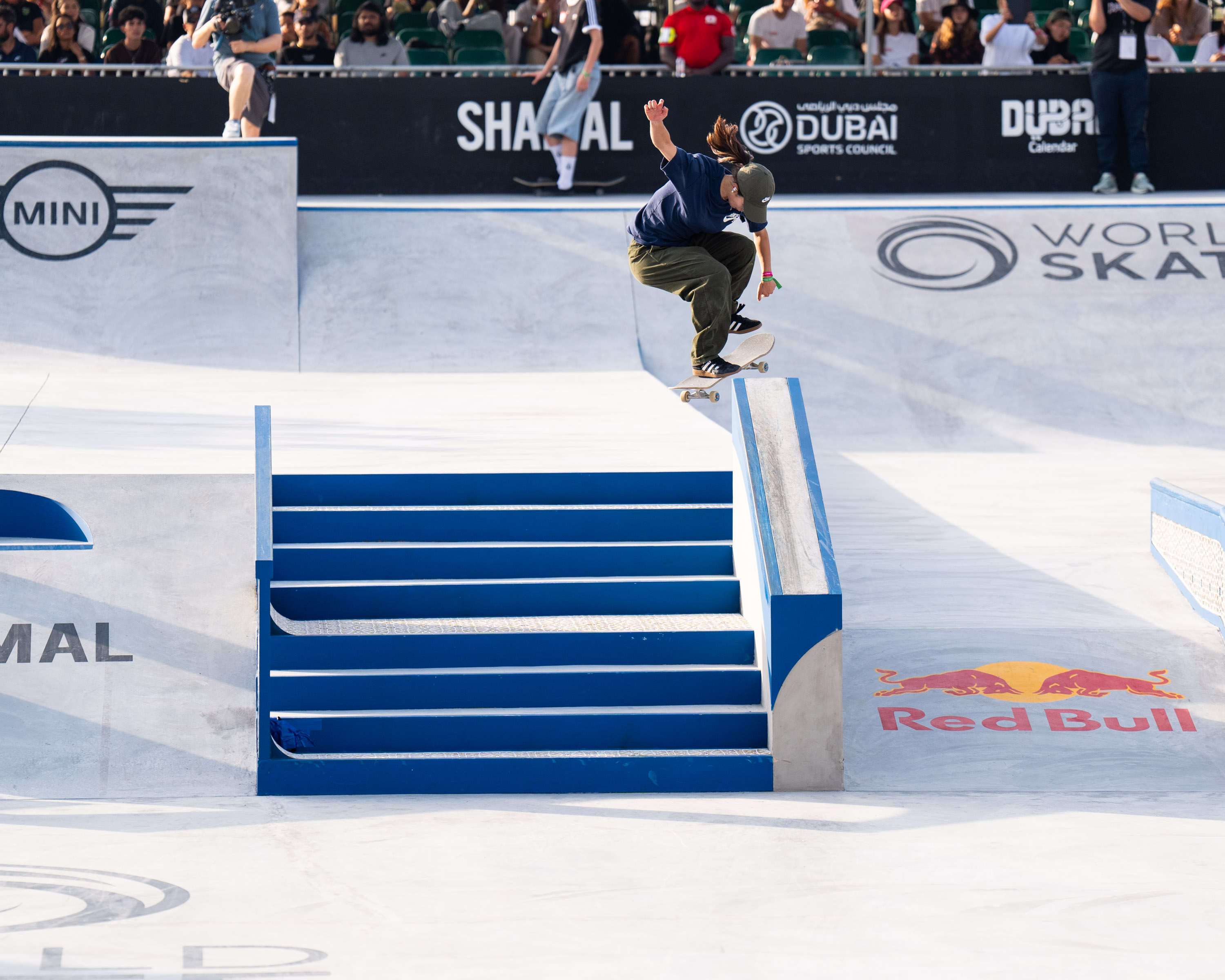
Nanaka Fujisawa. Current WSR Ranking: 19th Ph: Acosta
The top four in Men’s Street are Japanese. The seventh-placed, Yuto Horigome, is- of course- the two-time Olympic gold medallist. In Women’s Street, seven of the top ten (strictly-speaking, nine of the top fourteen, all told-) are Japanese. Five of the top eight in Women’s Park are fellow compatriots.
The one asterisk in the Japanese domination, Men’s Park, may not post the equivalent Tour-long numbers- highest-placed there is Yuro Nagahara in a respectable if not spectacular 13th place, followed by youngster Soya Inomata in 24th; but, it is yet worth noting that both posted their best-ever WST results at June’s World Cup Rome event (Yuro took his first podium place in second, while Soya took an incredible fifth).
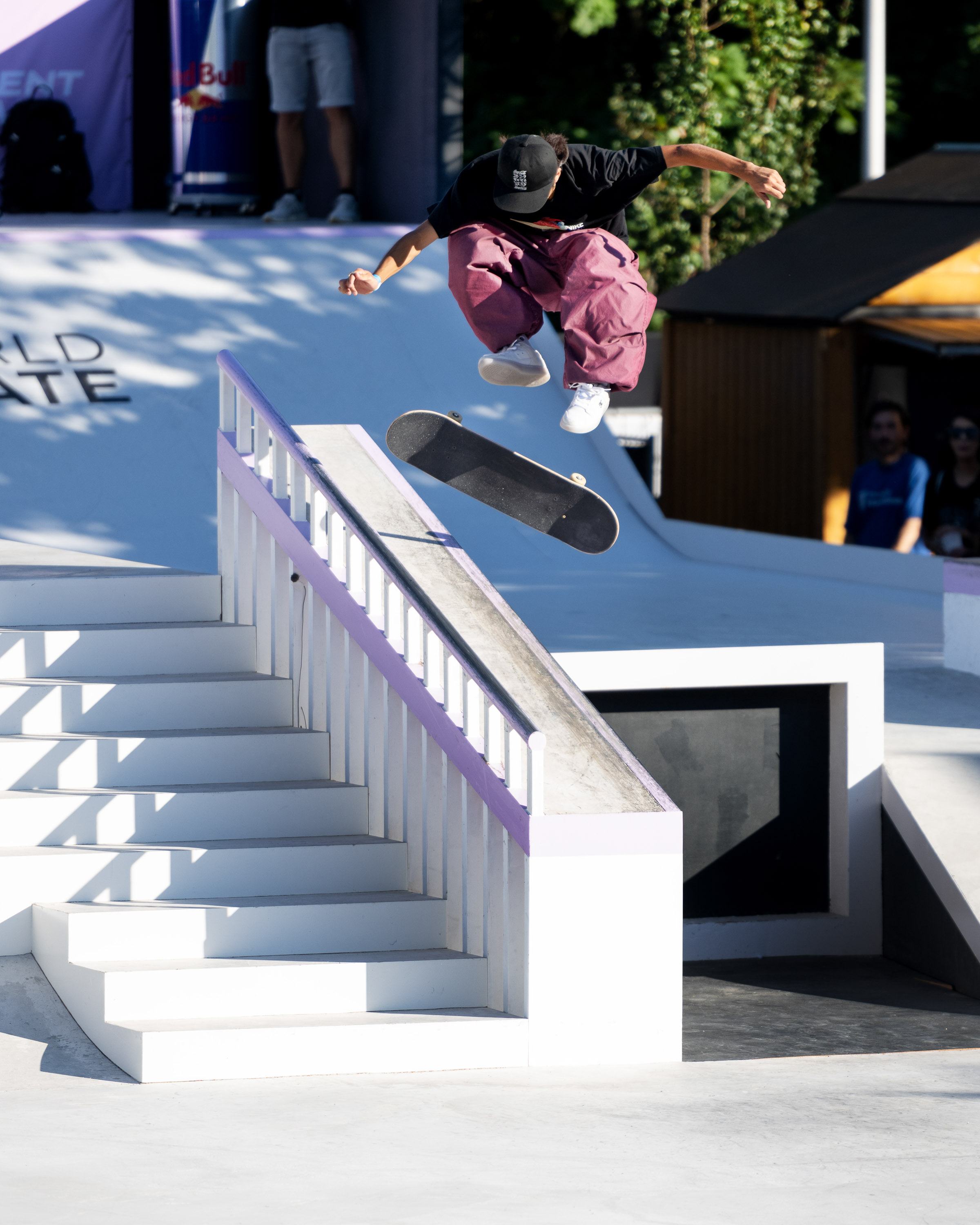
Yukito Aoki. Current WSR Ranking: 14th Ph: Darwen
While this may only represent a snapshot in time and rankings can rise or fall on a monthly basis as our 18-month result window rolls along the Tour, it is in the big stages and moments that Japanese skateboarding seems to shine. In fact, were it not for national quotas, the Japanese would have been even better-represented in Paris than they were: Tokyo Olympic gold medallist Momiji Nishiya did not make the IOC- specified cut- despite arguably being the biggest overall national talent in her category (and certainly looking that way at the WST Rome Street World Championship a month after).
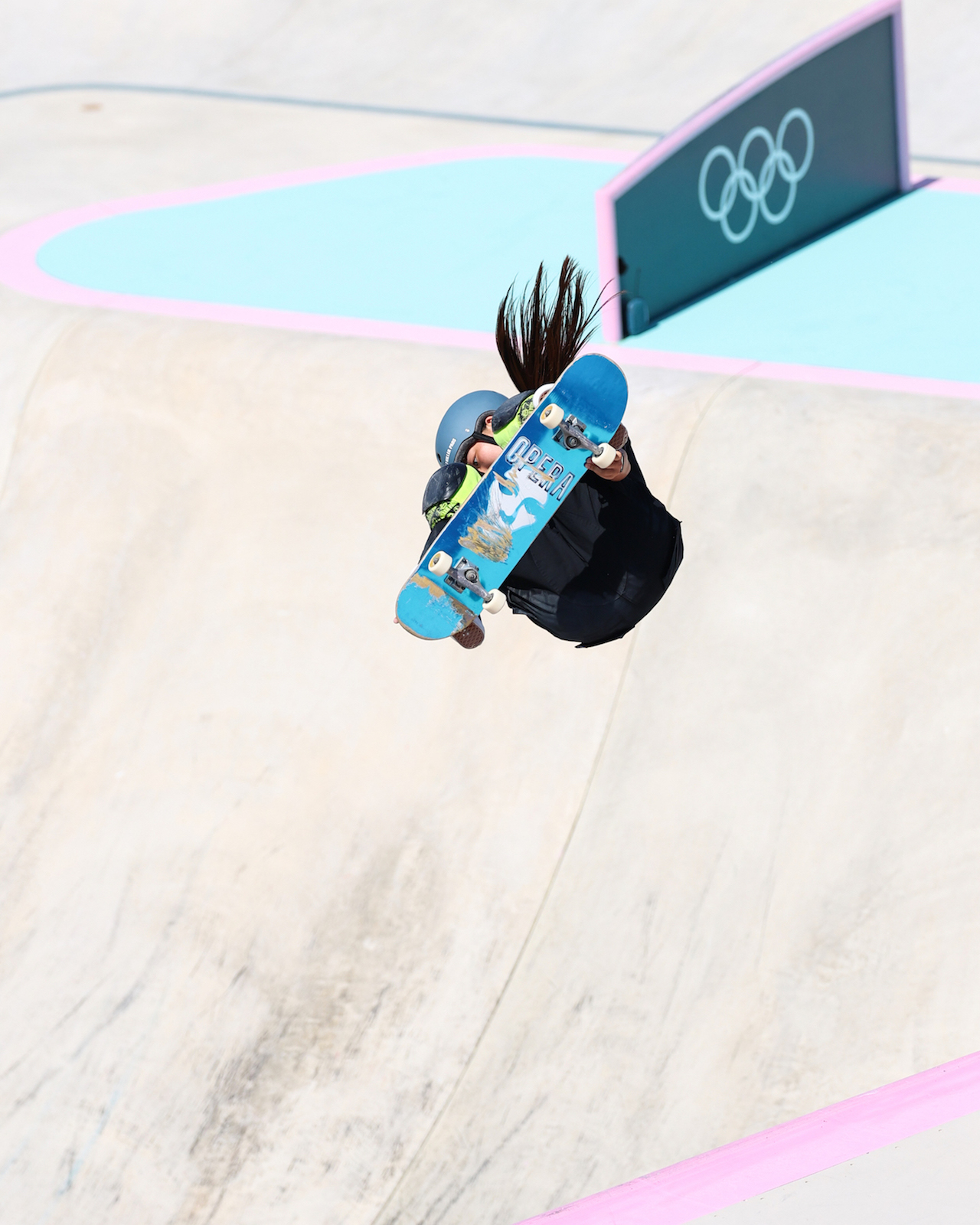
Hinano Kusaki. Current WSR Ranking: 4th Ph: Atiba
The other sweeping generalisation which we need to qualify is that contemporary Japanese culture refines more than it innovates. In truth, Japan graft their own schools onto movements. There are Japanese schools in art; there are Japanese schools in jazz. And there are Japanese schools in skateboarding. While it may be true that Japan’s concise geographic landspace and cultural norms mean that a greater percentage of Japanese skateboarding may be skatepark-focused, it would be remiss to say that it is only so- as brands like Evisen, video productions from Tightbooth and FESN, and scenes like the Osaka Daggers all capably demonstrate.
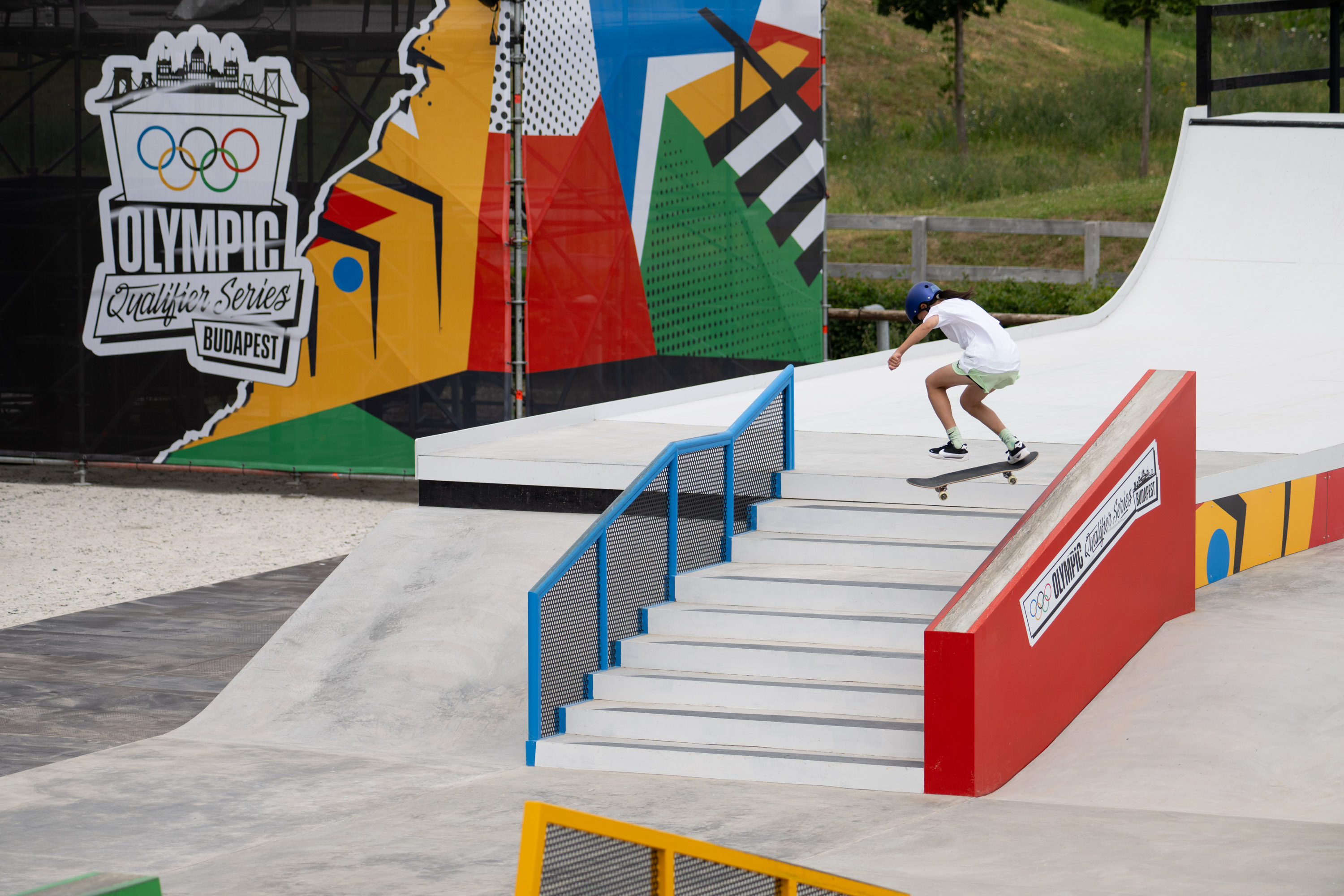
Ginwoo Onodera. Current WSR Ranking: 2nd Ph: Haruta
For more on Japan’s wider contribution to skateboarding culture you could do worse than begin looking here, here or here- but with regards to our specific question about the World Skateboarding Tour, it's also worth taking in some other viewpoints.
Just why has Japan suddenly come from relative obscurity to dominate the competitive skateboarding landscape as no other nation today?
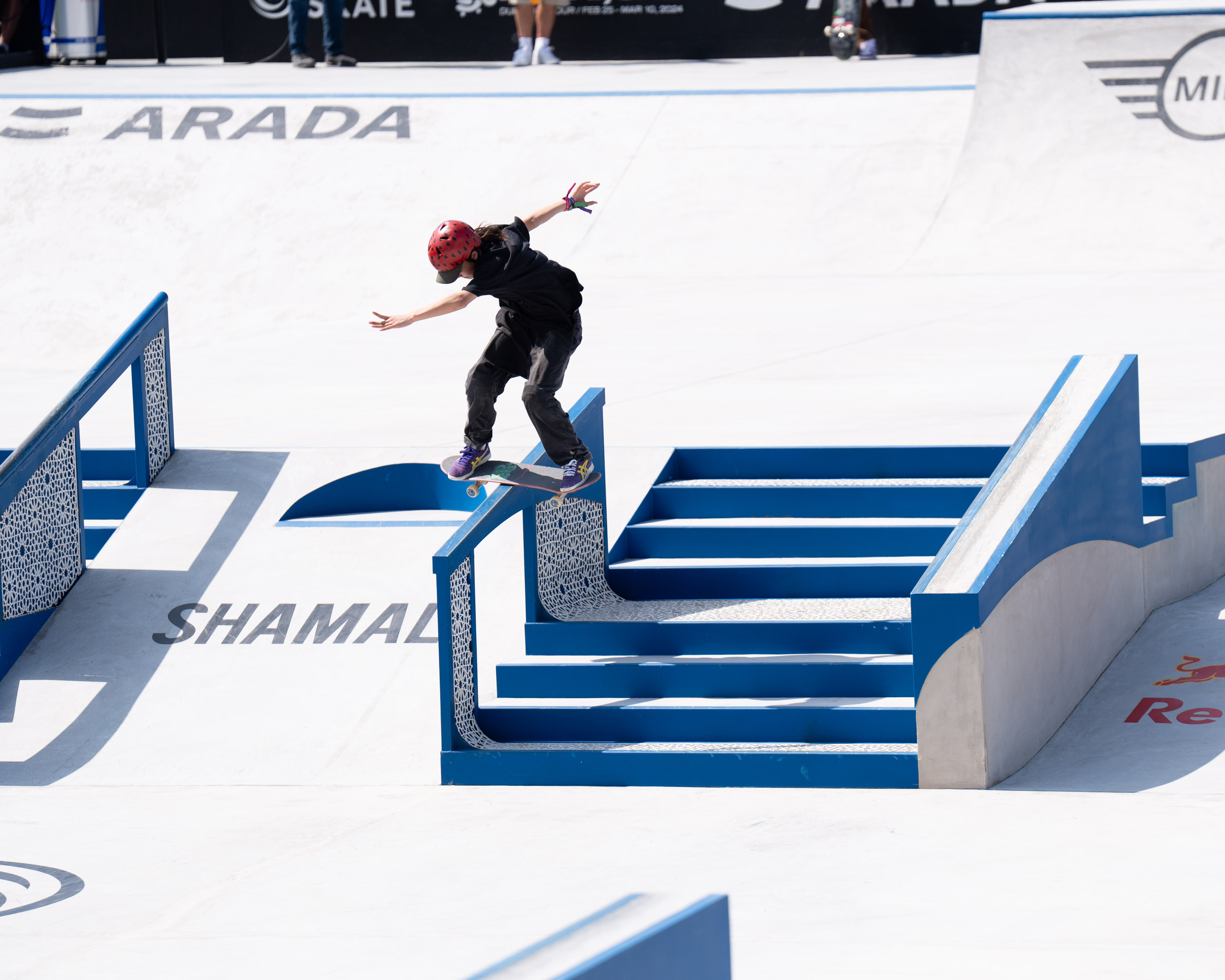
Ibuki Matsumoto. Current WSR Ranking: 10th Ph: Acosta
During their excellent recent Open House, event and talent management agency Boardr noted that of all the ‘Big 4’ skateboarding nations, Japan had the highest retention of skaters coming back to compete in events year after year- with Rob Meronek noting “...their work ethic and determined approach and discipline-” and Ryan Clements adding that “-their entire culture provides for good contest skating.”
So: determination and discipline are one factor, fo sho. Let's make a quick note of that and press on.
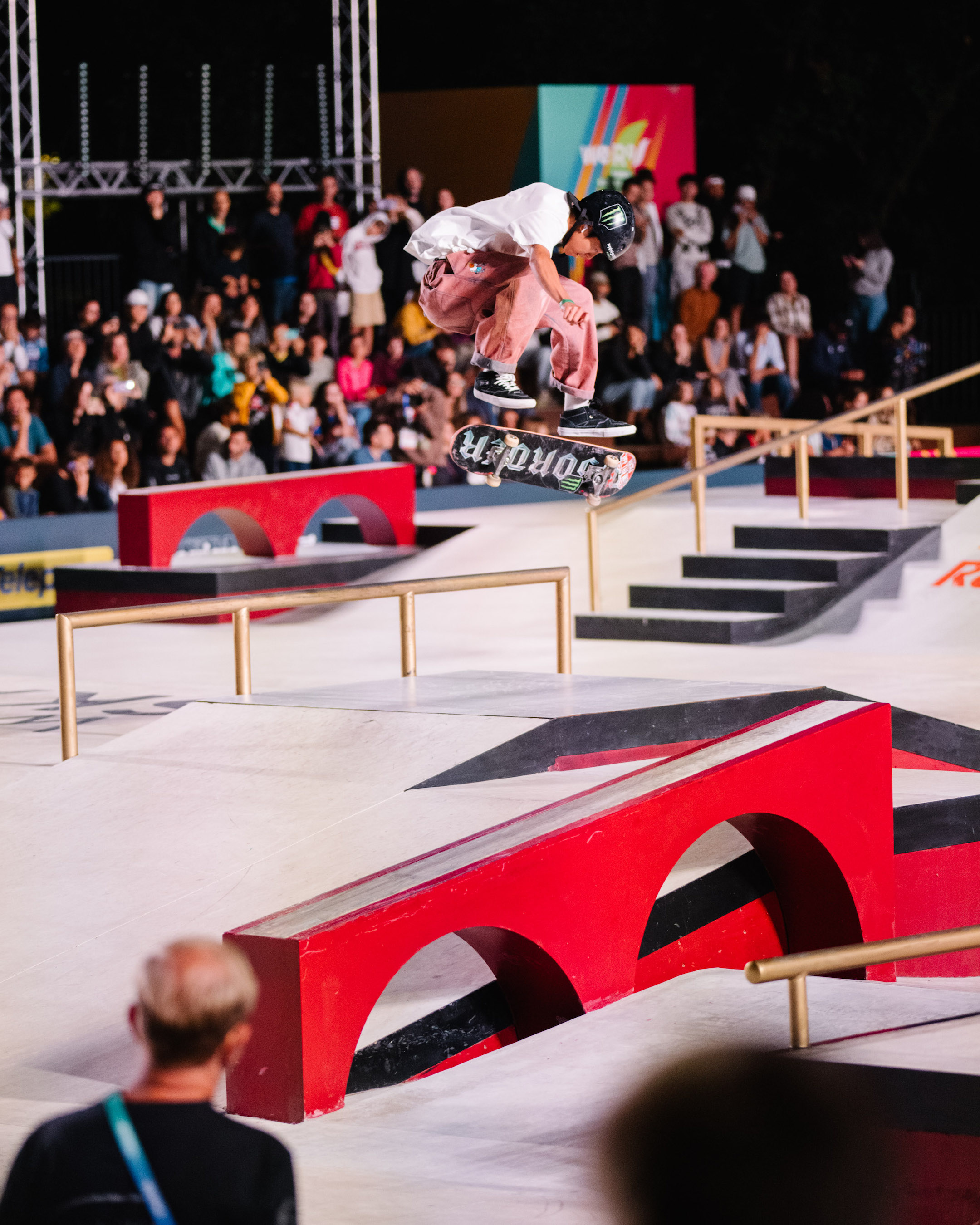
Toa Sasaki. Current WSR Ranking: 1st Ph: Haruta
Speaking to the Olympics website ahead of those Paris Games, Japanese coach Daisuke Hayakawa pointed to a specific inflection point in time since which Japan’s competitive skateboarding onslaught has been nigh-on unstoppable. That moment was when Yuto Horigome announced his intention to dominate all facets of skateboarding, all at once.
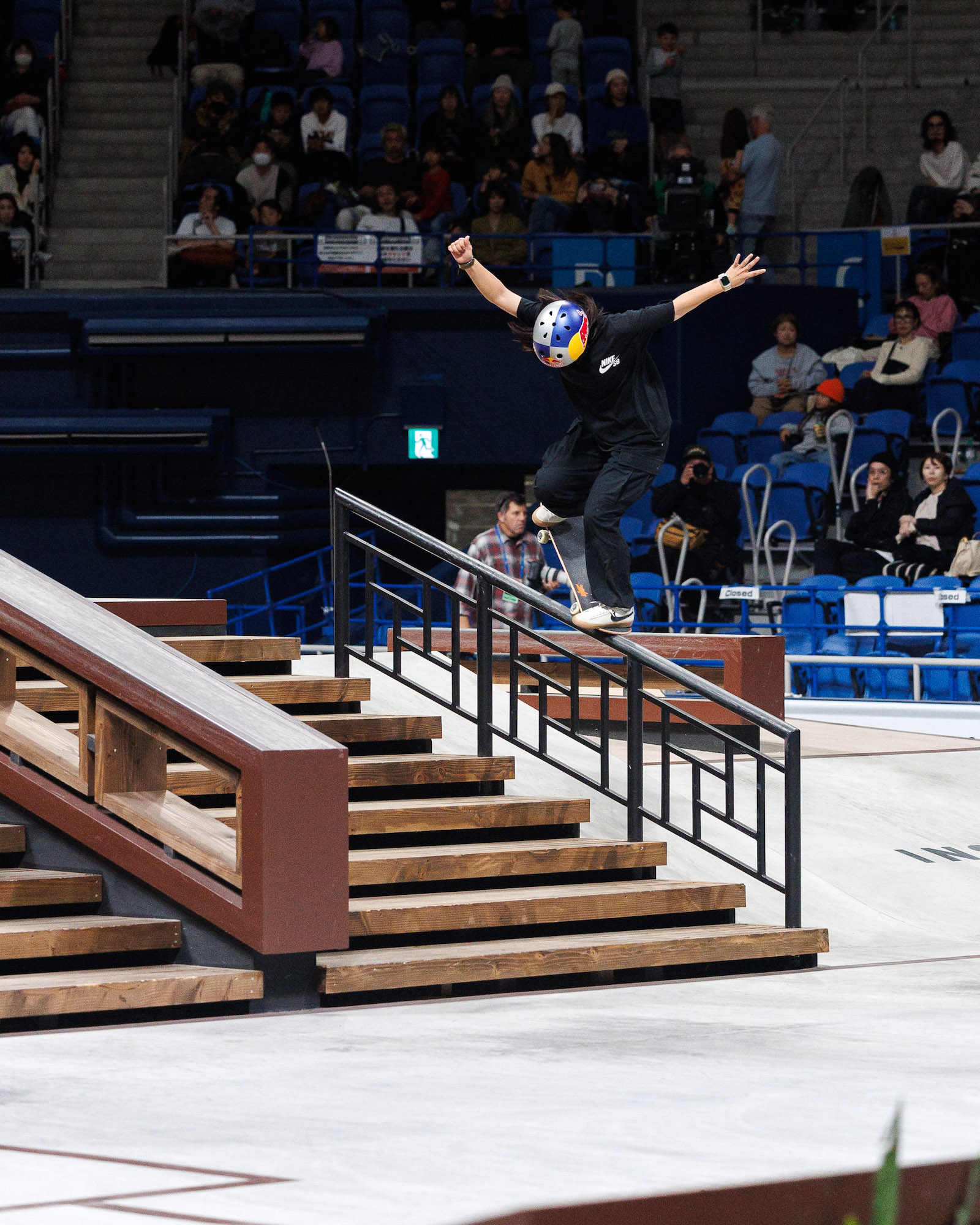
Yumeka Oda. Current WSR Ranking: 8th Ph: Atiba
Yuto's Tokyo success sparked the realisation among Japanese skaters themselves that they could not just challenge but dominate at the highest international level. That sliced open the ropes holding the drawbridge of possibility shut- and apres that, it has been pretty much la deluge ever since.
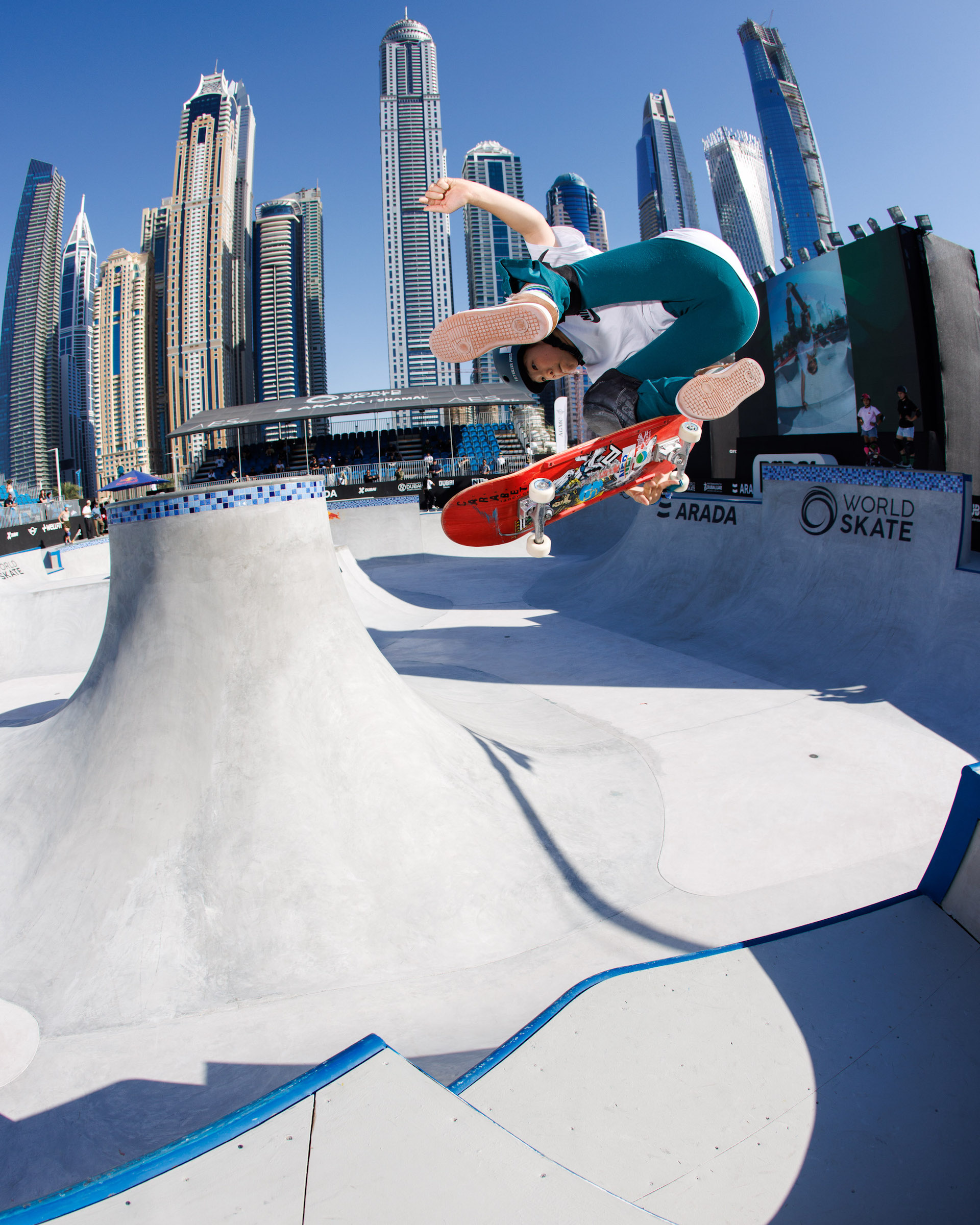
Mizuho Hasegawa. Current WSR Ranking: 3rd Ph: Kanights
“Now you have kids who were following Yuto’s movements wanting to be not No. 1 in Japan but No. 1 in the world - and that has been the most crucial change in Japanese skateboarding…”, Daisuke told interviewer Shintaro Kano- “…the growth of Japanese skateboarding and the Olympics crossed paths at just the right time.”
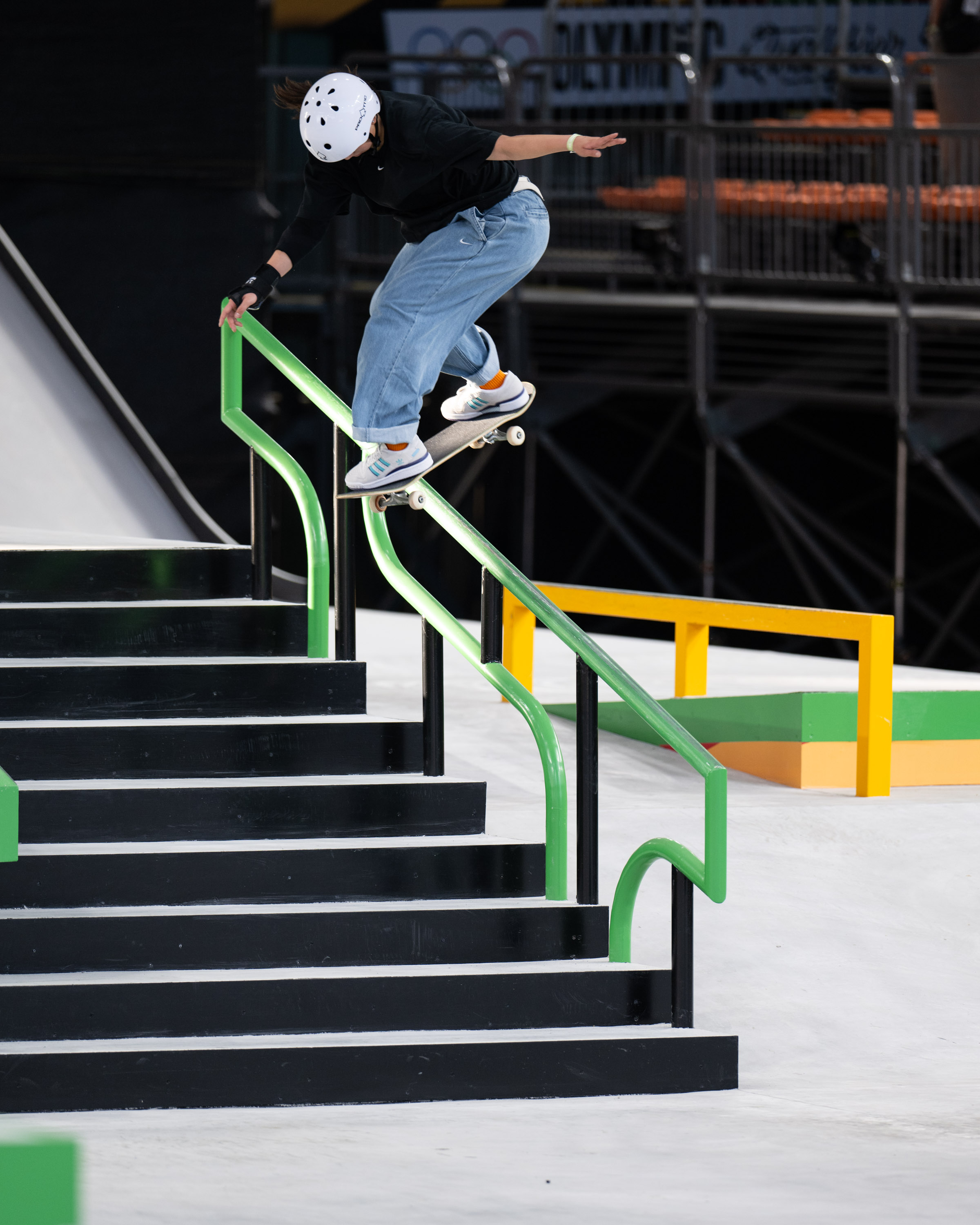
Momiji Nishiya. Current WSR Ranking: 7th Ph: Haruta
Growing collective self-belief, then, we can say is another factor in why Japan have come to dominate competitive skateboarding in a decade.
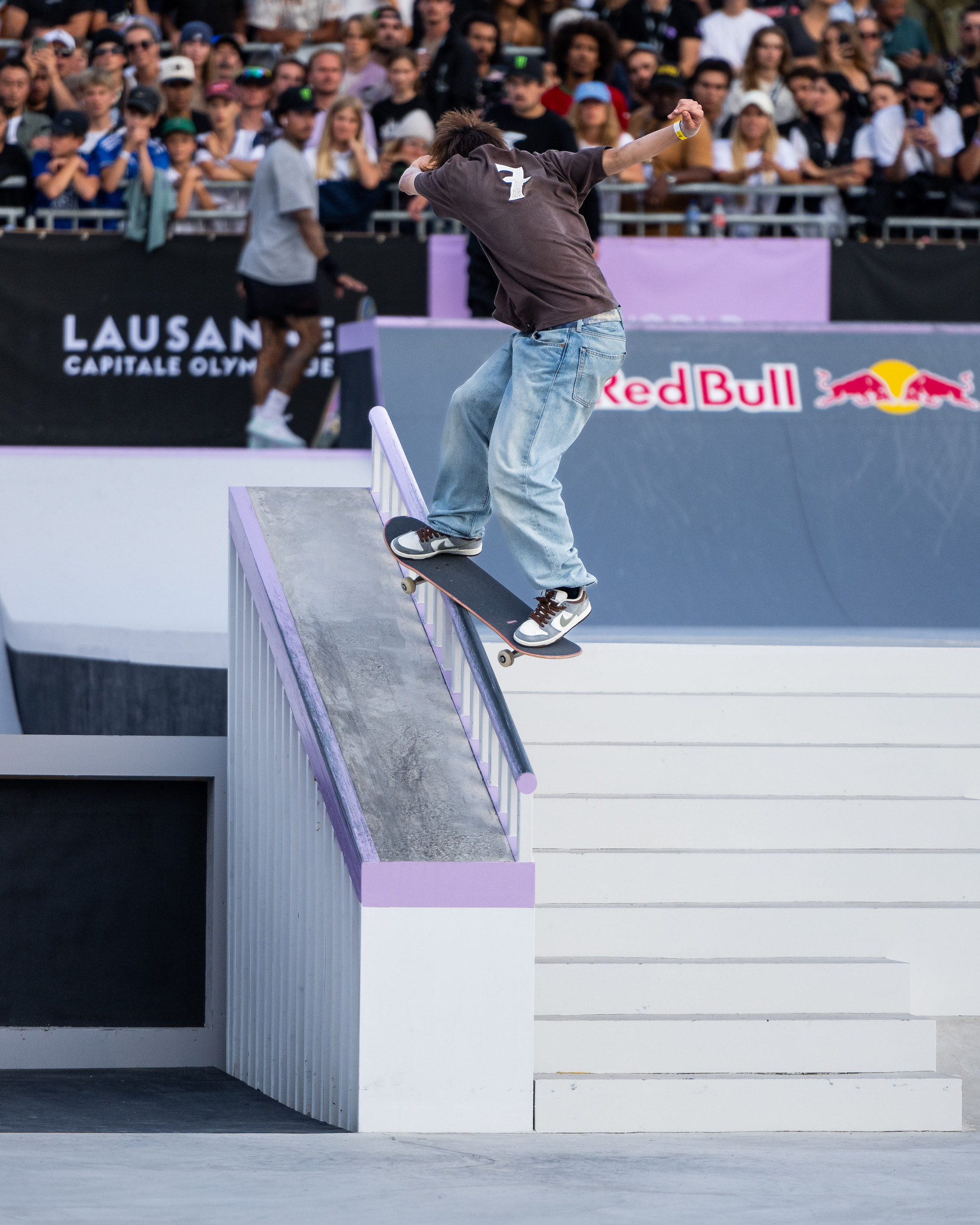
Yuto Horigome. Current WSR Ranking: 7th Ph: Darwen
The final piece of the puzzle was touched upon by photographer Bryce Kanights, someone who knows everything worth knowing about the lore and trajectory of the activity from as far back as anybody's memory goes in this game.
He summarises it in a single word: respect.
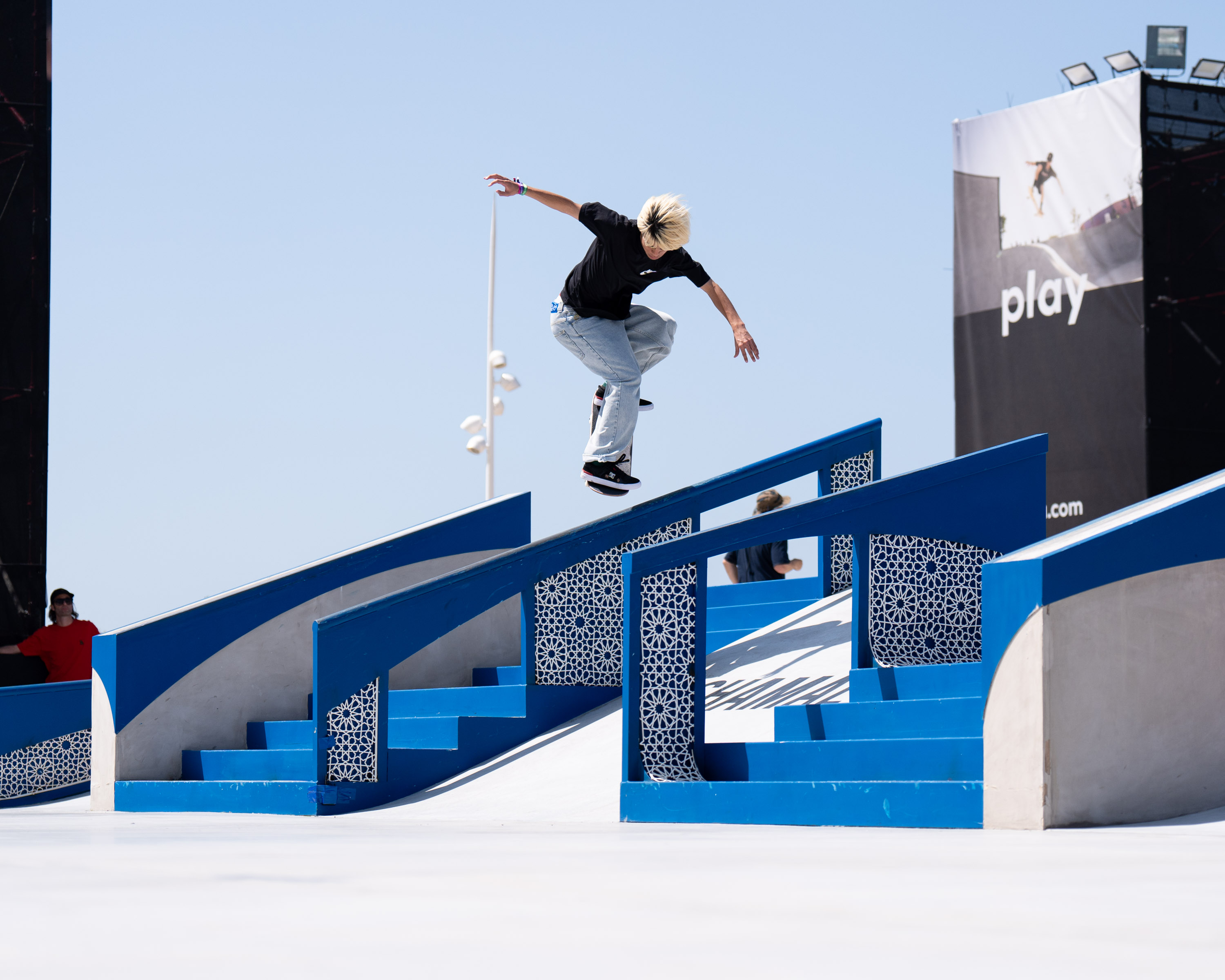
Kairi Netsuke. Current WSR Ranking: 4th Ph: Acosta
The Japanese skateboarders respect the opportunities that have been given to them. They respect the coaches, they respect the culture of skateboarding.
Somewhere within that nexus of determination, self-belief and respect you may just get a fleeting, mercurial sense of the 'why' behind what the rest of us are watching unfold in real time.
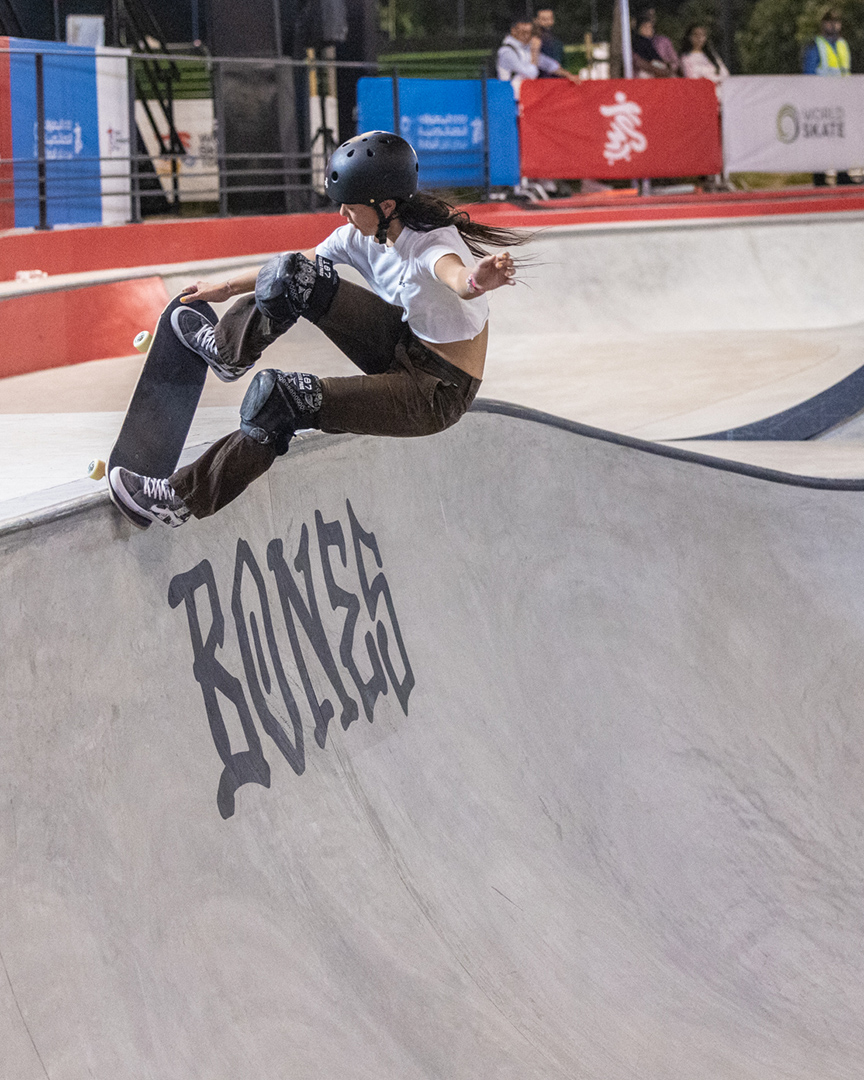
Cocona Hiraki. Current WSR Ranking: 5th Ph: Kanights
To leave you with a final thought from Daisuke Hayakawa plucked from those heady days of that early summer 2024, right before Yuto delivered the Miracle Of Paris in front of a global audience of untold millions:
“Of course we want to win medals- and we expect it.
We are ticking off all the boxes, but I want our skaters to be more than just about contests.
I want them to be able to articulate what the culture is all about.
That’s what I’d like to develop.”
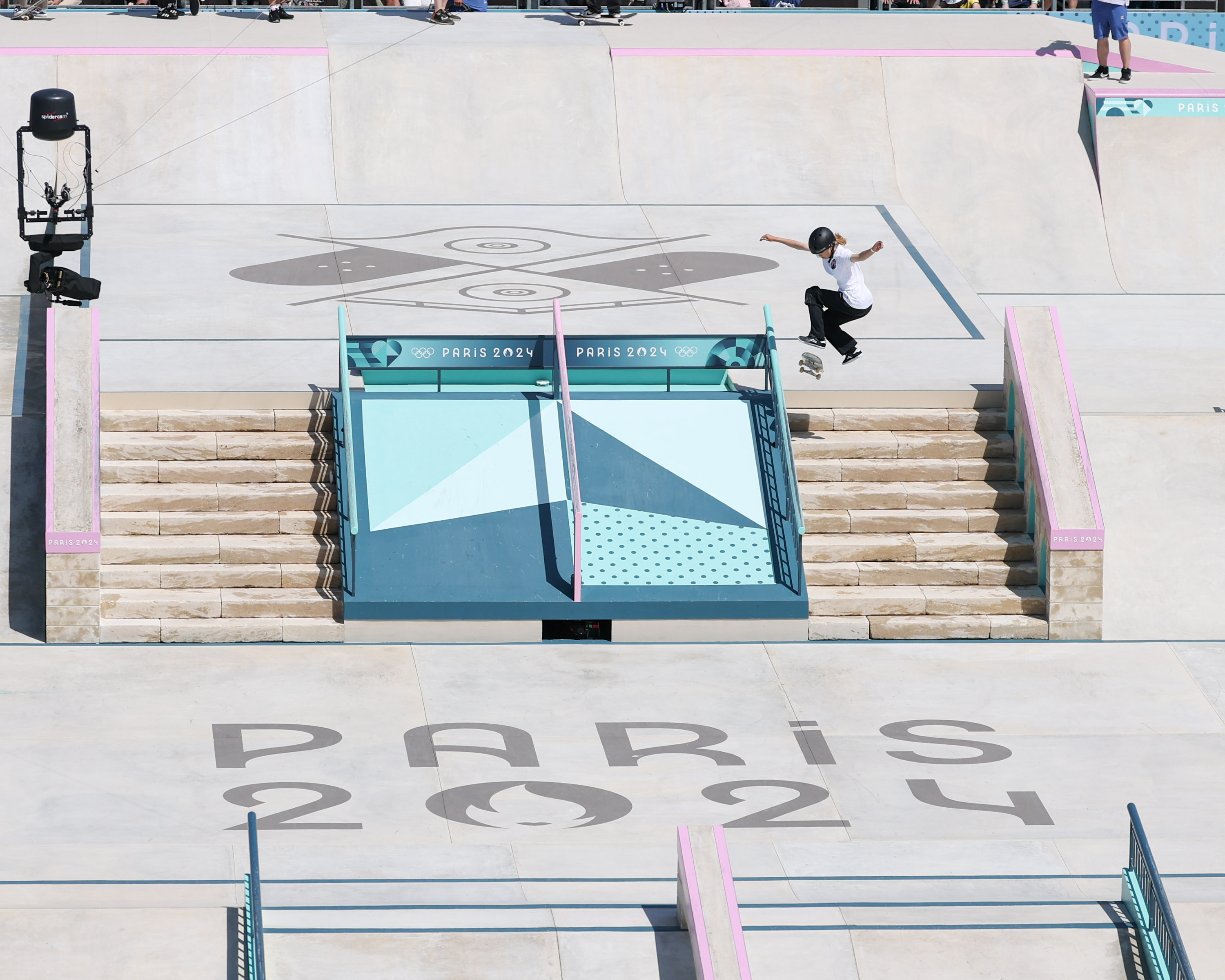
Coco Yoshizawa. Current WSR Ranking: 1st Ph: Atiba
What’s not to love about that?
